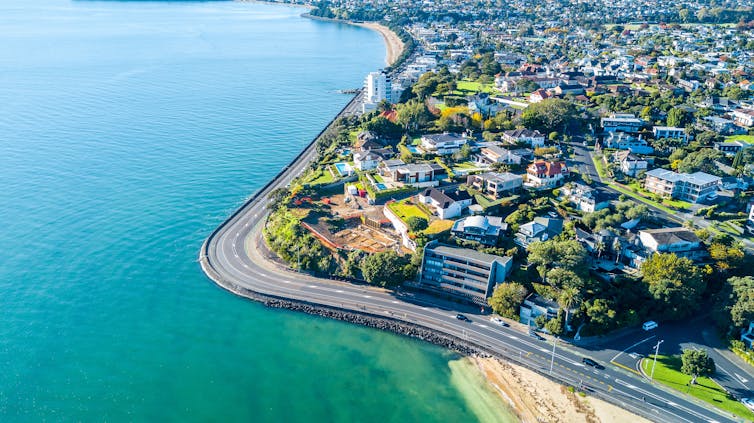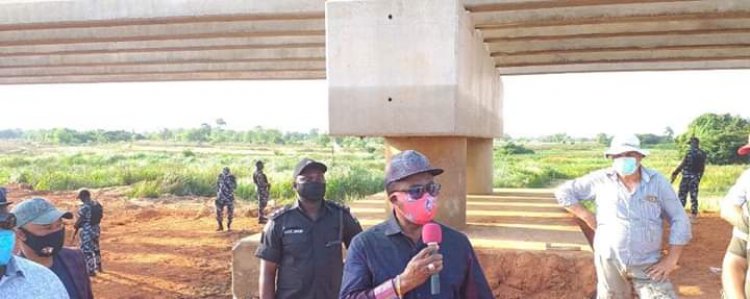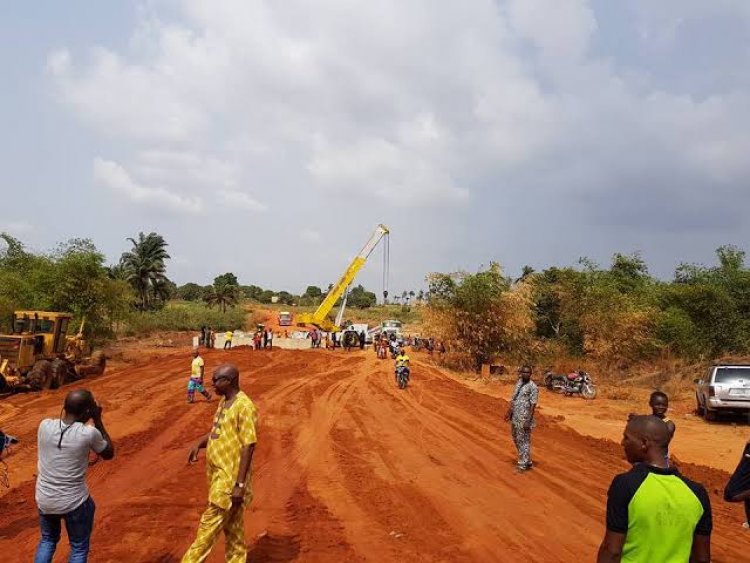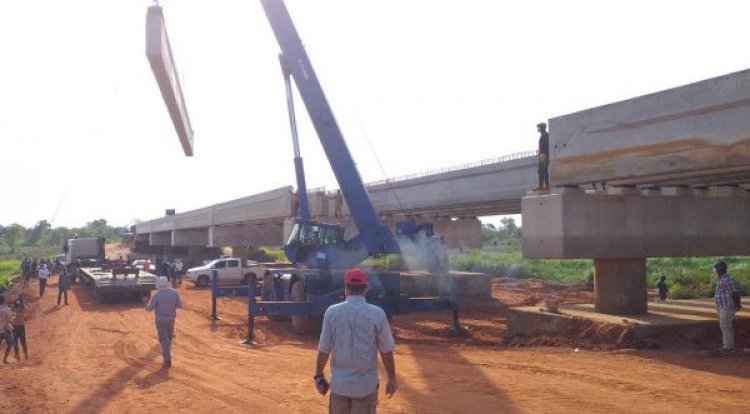Under Obiano, Anambra Prides In Road Infrastructure
By Izunna Okafor
Road, as is generally rated, is one of the major factors tha propel the developmental wheel of every society. Hence, both developed, developing and underdeveloped countries of the world hold good road to a high esteem.
In pursuance of this, Government Anambra State, from the incipient stage of the state in August 27th 1991, has been taking a 'solid stand' and making a giant stride when it comes to building and maintaining good roads, as a way of brightening up the state and stimulating the economic roots for her general development and comeliness. Previous administrations in the state, starting from that of Navy Captain Joseph Abulu, to that of the immediate past government of Peter Obi, made their respectively marks when it comes to road construction and maintenance in the state, until the saddle of leadership fell on the incumbent Governor Willie Obiano.
Exactly seven years today, when he took over the mantle of leadership on 17th March, 2014, Governor Obiano, in his Inaugural Address, said his vision 'is to make Anambra State the first-choice investment destination and a hub for industrialization and commercial activities’, while his mission ‘is to make Anambra State a socially-stable, business-friendly environment that would attract both indigenes and foreigners to seek wealth-creating opportunities.'
To actualise these, he rolled out what he called four pillars of development, viz: Agriculture, Industrialization, Trade and Commerce and Oil & Gas.
Understanding fully well that infrastructural decay such as bad road network could be a bane to full realisation of these, the Governor swung into action with the aim of not only giving the state capital, Awka, a befitting infrastructural facelift, but also replicating same in other urban cities and rural areas across the state. In other words, it was also extended to the hinterlands where tarred roads never appeared before, and places bad roads had appeared to be one of the most contumacious and yet-to-be-fully-addressed challenges bedevilling the farmers and agricultural activities in the state, especially when it comes to conveying agricultural produce.
On that flank, the administration first undertook and completed the construction of three flyovers along the Awka axis of the Enugu—Onitsha Expressway (one at Aroma Junction; one at Kwata Junction; and another at Amawbia Junction) which have brought an ultimate end to the age-long snarl-up usually experienced at three junctions. The administration also rehabilitated the dilapidated and failed portions of the Enugu—Onitsha Expressway from Amawbia up to Agu Awka Junction.
As at date, Obiano Administration has taken on a total of 202 roads across the three geopolitical zones of the state. Out of these 202 roads, 77 are in Anambra North (both completed and ongoing); while Anambra Central and Anambra South have 72 and 53 respectively (both completed and ongoing).
Aside the impacts of each road on development and socio-economic well-being of the society, another consideration of the Obiano Administration in selection of new road projects is taking asphalted roads to areas where they had not existed before. Also, the administration has undertaken some road works with the aim of facilitating access to those areas of strategic economic interest and investment; making evacuation of farm produce easy; motivating teachers to go to rural-based schools, and enabling easy and quick commuting between remote places and the State's heartland.
Diligently pursuing these, many communities that hitherto had no asphalted roads now have (some of which are still ongoing), while many agrarian hinterlands in the state now also have access roads (some of which are still ongoing). For instance, Nzam, which is the headquarter of Anambra West Local Government used to be the only local government headquarter that had no single tarred road. But that is about to change now, as the 14-kilometre road (with a now-completed bridge) leading thereto has recorded over ninety percent completion rate.
The citizens of Onono community also hardly access their homes without going through Delta State; but currently, the trend is also about to change, as the community is now at the verge of being linked up with other parts of Anambra State with asphalted road.
Furthermore, Enugu-Otu, Eziagulu-Otu, and Mkpunando are other communities that previously had not seen tarred roads, but currently, a 42-kilometre road connecting the communities is ongoing, with about fifty per cent completion rate.
Work is ongoing on the road that leads to state's oil field through through Aguleri-Uno and Aguleri-Otu to the tune of N23b. The area used to be accessed through Enugu State before, but the Governor came in and vowed to change the narrative, saying that 'we must have a good road to what belongs to us.' A solid 12-kilometre road with 24 culverts is also ongoing, to ease access to Ogwuaniocha Community in Ogbaru Local Government Area, which is another town in the state with petroleum deposit. Another solid 11.2-kilometre road (with a bridge) is ongoing to link Ayamelum and Anambra East local lovernment areas, which will also enhance easy access to the nearby multi billion naira Chelsea Farm, the entry to which was also hitherto negotiated through Enugu State.
Judging from the above, it could be seen that one of the most interesting and peculiar things about roads construction under Governor Obiano is that most of these roads are passing through bushy areas, as they are constructed in the grassroots and the hinterlands, with a key aim to open up and drive developments to those areas. And this aim is obviously being achieved, as residential buildings, filling stations, industries and other investments now expectedly begin to spring up along these areas as soon as the roads pass. Taking this into consideration, giving the Governor Willie Obiano a title as "Ọwara ụzọ n'ịkpa" would never be a misnomer.
He has not only kept his promise of completing and commissioning inherited roads, but has also constructed new ones, commendably on where there was none in the past. In March 2015, Anambra State Government, under Governor Willie Obiano approved expenditure of USD25.3 million for a new four-lane approach road to the site of the ongoing Umueri Cargo Airport project.
The Governor has also proved to be determined to complete the road between Igbariam and Anaku, an area considered a major food basket of the state, while rice-growing Ifite-Ogwari Community currently witnesses metamorphosis in asphalted roads, and Oye-Agu Abagana-Nimo Road is over seventy percent complete.
Generally speaking, among other roads that received the 'Obiano Effect' in the last seven years include the Oluoghoha Road in Ihiala, Umuabuchi Road in Uli, Orsumuohu Road, Jerome Udorji Road Ozubulu, Ezira-Umuomaku, Achina Road, Isuofia Road, Ogwuaniocha-Ihiala Road (with connecting bridge), Ogwuikpere Road, Mmiata-Nzam Road, Aguleri Uno–Aguleri Otu Road (with longest bridge in the southeastern Nigeria —the 280 metre-long Omambala River Bridge), Aguleri Junction-Anakwu Road, Ukwuoji-Umuenechi-Umubelle-Nibo Road.
Others include the Esther Obiakor Estate Road in Akwa, Awka-Isuanaocha-Achalla Road, Enugu-Umuonyia-Achina-Onneh Road, Ichida-Azibgo-Amichi-Osumenyi-Akwaihedi Road (inherited from his predecessor, Obi), Amansea-Ebenebe-Ugbenu-Ugbene-Awba Ofemili Road (inherited from his predecessor, Obi), Achina-Oneh- Agbudu-Ogboji, Atani–Ozubulu Roads (inherited from his predecessor, Obi), Amansea-Awba Ofemmili Road, Ifite-Unizik Gate Road, among others.
Ekwulobia–Ezinifite road, Ifite Nteje–Umunya road (with Bridge), Ekwulobia–Umunze–Umuchu bypass, Awkuzu–Nando road, Igboukwu–Ekwulummili road, to mention but a few, are among the numerous completed road projects by Governor Obiano.
According to the state's Commissioner for Works, Mr. Marcel Ifejiofor, the current administration of Governor Willie Obiano inherited a total of 96 road projects awarded by his predecessor and has completed 54, with the other 42 at various stages of completion.
In a recent interview, the Commissioner said, "Governor Obiano does not want to leave any project uncompleted anywhere in the state. Despite the economic downturn in the country which was followed by coronavirus pandemic, EndSARS and back to COVID-19 again, the governor has continued to push for the completion of all these projects.
"The Government inaugurated a committee known as Design Review Committee because it discovered that Anambra is the most erosion-ravaged state in Nigeria with about 1000 active erosion sites, and some of these gullies form because of poor discharge of flood water from road construction sites. We redesigned most of the inherited road projects so as to meet modern designs and avert the issue of erosion."
With these, evidence abounds that the current administration of Governor Willie Obiano has indeed done exceedingly well in road construction, reconstruction and maintenance in the past 7 years it came into power; and hence deserves some accolades.
Apparently, the primary objectives behind all these completion, construction, reconstruction and maintenance of roads by the Obiano-led Administration in Anambra State revolve around improving the socio-economic development of the state, while also striding multi-sectorally for a greater Anambra.
Good road is not only a development itself, it is also a driver and facilitator of other forms of development, both industrial and agricultural, among others.
And these have come to be proved and fully realised in Anambra State.
Worthy of reiteration is the fact that a great percentage of roads done by Governor Obiano are virgin roads that tear through fields, thick bushes and across rivers to connect and link up Anambra communities and cities.
These highly agrarian communities where some of these roads pass through now have the opportunity of selling and easily conveying their farm products and fishes at good prices to buyers and traders from both within and outside the state, most of whom now easily get to these communities to buy and transport the products themselves.
However commendable these giant strides are, there are still some roads that dun and yawn for government's urgent attention in some parts of Anambra State. Some of them include the Ebenator-Ukpor road, the Ugwuorie-Umuohama-Uboma Ukpor road, all in Nnewi South Local Government Area; Obunagu road in Awka, Akili Ogidi road Ogbaru Local Government Area, etc. More so, some roads like Arthur Eze Avenue in Awka, Oby Okoli Avenue (Unizik Junction – Okpuno Awka road), High Tension road in Awka, need urgent attention, as they are riddled with potholes, which pose threats to their beauty and smoothness. Hence, it is expected that the government urgently also intervenes in those areas in the interest of those, as it has responsively and responsibly done in other areas that had such problems in the last seven years.
These notwithstanding, Anambra, today, ranks 'above the better' in the entire federation, when it comes to good road network. Agricultural and industrial activities in the state have also been on the spike. Anambra now export agricultural produce to Europe and other countries of the world. Access to Ogbunike Cave is now swift and easy than ever, as the road to the cynosural tourist site now wears a 'welcoming' look.
All these good effects of good roads in Anambra State today also have both direct and indirect positive impacts on the State's Internally Generated Revenue (IGR) profile, on the commercial and agricultural activities within the state, and generally on the socio-economic well-being of the state and her residents. These have indeed stimulated and strengthened the state's economic roots in a plethora of ways.
As the Governor Obiano-led Administration in Anambra marks its seventh out of its eight-year maximum term today, it is expected that the incoming administration in the state sustains these laudable testimonies of good road network and does even more, so as to retain the state at her enviable position in the catalogue of states with best road network in the country.
Obiano has brightened up the light; and Anambra must continue to shine as the Light of the Nation.
What's Your Reaction?



























































































